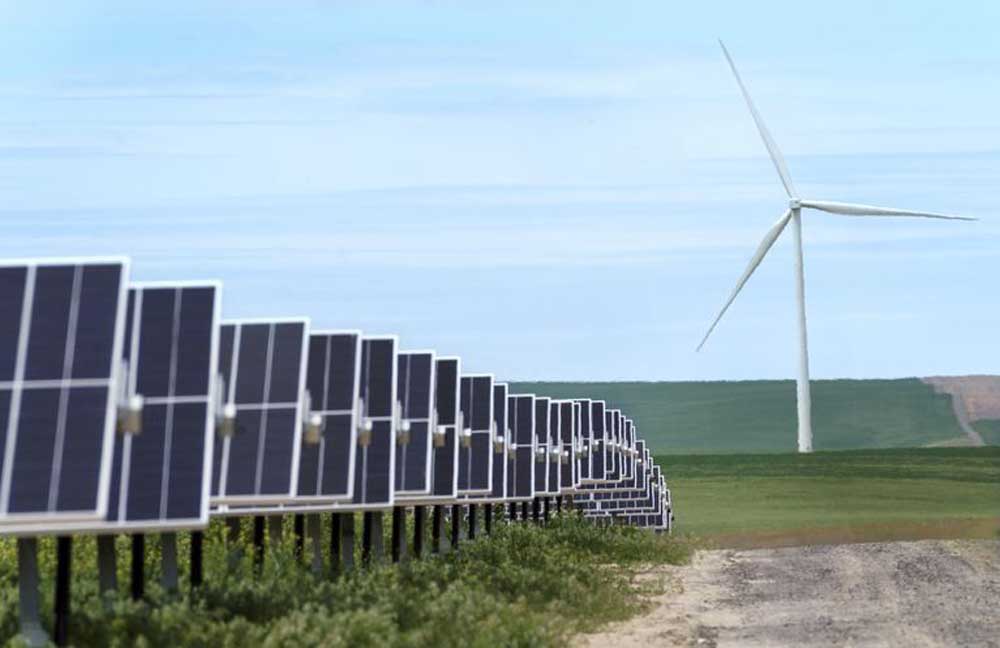The value of farmers markets
Published 10:33 pm Wednesday, May 29, 2019

- Ellen Morris BishopBeets are among the many, many locally grown healthy foods available seasonally at farmer’s markets.
It’s seriously spring in Wallowa County. The balsamroot is blooming on the moraine. Thunder is rolling through the mountains. And lots of us have finally gotten up the nerve to plant our garden.
The health benefits of eating fresh foods, whether vegetables harvested just before dinner, grass-fed beef raised locally with care, or eggs laid by your neighbors free-range, cricket-chomping chickens, have become readily apparent in the past decade. Our physicians sometimes prescribe a Whole 30 diet rather than prescription drugs. There should be little doubt in anyone’s mind that fresh, locally raised foods are generally better for us than goods hauled here from afar.
There are other benefits to growing our own foods and eating locally. First, it makes this isolated rural community more self-sufficient. That’s something that we have always taken pride in, and still do. Second, we support our neighbors who are growing good food as much as a labor of love as for income. Supporting local farms also helps keep us rural. Third, producing our own food strengthens our economy—in several ways. An article in the very urban Washington Post documents this clearly.
“Every time money changes hands in the community it boosts the community’s overall income and level of economic activity, and fuels the creation of jobs. The more times money changes hands within the community before heading elsewhere, the better off the community is,” said economist Sarah DeWeerdt. “Spending money at a locally-based business has a greater multiplier effect, …because locally owned businesses are more likely to invest their dollars locally.”
The January 2019 issue of the Journal of Agriculture, Food Systems, and Community Development included a study of Moscow, Idaho’s Farmers Market. The study indicated “a positive impact on the downtown community of Moscow due to direct sales at the market, and direct sales at nearby downtown businesses.” Total economic impact was “between $3.9 million to $5.5 million, generation of 94 to 129 local jobs, and $290,000 to $405,000 in taxes generated in the state.” (Of course, Idaho has a sales tax…) The report continues: “Moreover, there is evidence that the market fosters the brick and mortar businesses that may develop as spillover effects of business-to-business activity with market vendors.”
Granted, Moscow, Idaho is much larger than Joseph or Wallowa – or even Wallowa County, for that matter. But the basic findings still apply. A robust Farmers Market that purveys local foods is good for us all. Importantly, it attracts visitors and their dollars to the “nearby downtown businesses.”
For the City Council of Joseph to exile Wallowa County’s upper valley Farmers Market to an obscure parking lot on an outbound highway at the edge of town bespeaks a blatant and foolish disregard for the economy and health of their community. The citizens of Joseph owe a huge debt of gratitude to Stein’s Distillery for offering their parking lot to the Farmers Market, where it will be among the first things that many visitors see, and first place they stop. They will likely consider Joseph as a forward thinking, health-conscious community as a result. If the findings in Moscow, Idaho’s study hold true here, then some of Joseph’s newest businesses—Stein’s, Blythe Cricket, La Laguna, Aspen Grove Gallery and even the not-yet established MThrive Organics—may see their business prosper in a revitalized north end of town. And while this outcome is good, it’s sad that the Joseph City Council did not have the foresight to embrace and support an organization that provides nothing but good for the entire community of Joseph, and Wallowa County.








